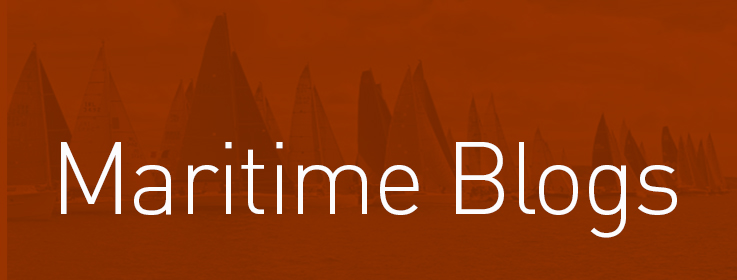No surprises who ruled the waves in Qingdao, and we'll be hearing about it for some time to come. But as Team GB’s final medal tally rose to four gold, a silver and a bronze, Ireland – without any results in the top half of any fleet - is looking for answers. Copying the Brits might be the best tactic.
Fushan Bay lived up to its reputation as a poor venue with unpredictable winds but regardless of conditions the top teams still came out on top. What
happened in China matters hugely because it sets the foundations for the next quadrennial. In fact, the emphasis among the 400-boat fleet has already moved from the Yellow Sea and to Weymouth, the venue for 2012.
The arguable highlight of the 60-nation event was Ben Ainslie's master class in the Finn dinghy. It taught the world another lesson about his supremacy and how serious Britain takes sailing – they spent £22 million to win six medals.
Many lessons have been learned in China, but perhaps the most important one for Ireland is what our nearest neighbour is planning over the next four years, both as Olympic host and the world's strongest sailing nation.
Ireland's Olympic regatta goal was a top eight finish for at least one of the four competing boats. Deliberately, unlike the run-up to Sydney and Athens, there was no talk of medals. This was a rookie squad and results were up and down.
The fact that no Irish crew finished in the top half in any of the four fleets meant it was down to Athens veteran Ger Owens for the Irish highlight - two race wins for himself and Phil Lawton in the 470 class. Unfortunately, that was not enough to lift them above 16th overall, the same as had been posted in Athens. Tim Goodbody finished 21st in the Finn. Ciara Peelo in the Laser Radial was 20th and Peter O'Leary and Steven Milne, after a a campaign
of four months, 13th in the Star. But the results themselves belie an important fact that needs highlighting, especially in an Irish sporting context. Unlike track and field events where heats lead to a final sailing differs because by making it to Qingdao Irish crews had qualified for sailing's Olympic final.
No Irish sailor has finished in the top eight at an Olympic regatta since 1980 so it’s unclear how three Qingdao greenhorns might possibly have been
expected to achieve it. This and many other questions face a managemen debrief that now needs to revise targets to gain new momentum. The immediate target is Weymouth and it will need to rely on its youth programme and existing Olympic panel for that but what it lacks for the future is a sufficient number of participants. It will involve some long term initiatives to broaden interest in the sport for 2016 and beyond.
When Ainslie picked up his third gold medal, he also earned himself a place in British Olympic history as the most decorated of all British Olympic sailors. It’s an outstanding achievement for the product of a Royal Yachting Association (RYA) campaign that identified talented British youngsters in the Eighties and Nineties. It's a model that is there to be replicated.
The success of the RYA campaign – one that focussed on broadening the sport across the UK population - is well documented, as is RYA Team GBR that has positioned Britain as the most successful sailing nation in Olympic history and sailing as Britain's current top-performing Olympic sport.
The RYA has a pool of talent so deep that an elite band of youth sailors waits for its chance to follow in the wake of the current squad. This talent has been nurtured from regional squads over two decades.
What's daunting about Ainslie is that, with four medals under his belt, he is also currently at the peak of his career. Aged just 31, he has many more regattas to go and has indicated every intention of being at Weymouth in four years.
Ainslie reminds us what sailing as a sport can do, the very reason why we want our children out on the water. He’s a role model for all school kids, not just those in Britain. If targeting school kids for yachting medals might sound far fetched, it needs to be taken in the context that we have been nearly 30 years without success. Ireland won silver in 1980 but that was when 62 nations boycotted the regatta.
The introspective world of Irish Olympic sailing needs to think outside traditional circles of yacht club grass roots that have so far failed to deliver.
When the then Minister for Education Mary Hanafin spoke about putting sailing on the school curriculum at the National Yacht Club a year ago, she spoke with some conviction. It wasn’t a gimmick because the general election was over.
She was launching the Laser 2007 4.7 European championships, just one of three major sailing events for her Dun Laoghaire constituency, an affluent
Dublin suburb with four waterfront yacht clubs, a magnificent man-made harbour and an 800-berth state–of-the-art marina.
But the minister had to refer to Schull Community School in West Cork to give an example of a school that goes sailing as most other schools are content with PE.
In spite of many individual attempts to promote school sailing, it has never taken off. What is required now is a new initiative to get children afloat across the country – perhaps in Dun Laoghaire, where four waterfront clubs have the ideal infrastructure to promote the sport. By investing in schools, clubs are investing in the future.
Results on the Yellow Sea may not show it but a lot has been achieved by James O'Callaghan's young team. There is a core already set on London including a gutsy young Star pairing of O'Leary and Milne. Already they will be challenged by Max Treacy and Anthony Shanks who will declare next week.
And there is an existing structure for youth sailing that has borne fruit in this month alone when 14 Laser Radial sailors from the Irish Sailing Associaton youth academy made the trip to Douarnenez, France for this year’s youth Europeans, with the event producing Ireland’s second top five at a worlds or Europeans this year.
These are achievements that need to be built on and the best way to do that is to add more numbers. Sitting in a class room perhaps in Schull or maybe
in Dun Laoghaire there may well be a youngster with the same superpowers as Ainslie. The challenge is to identify him or her and give them access to the
water.





































































